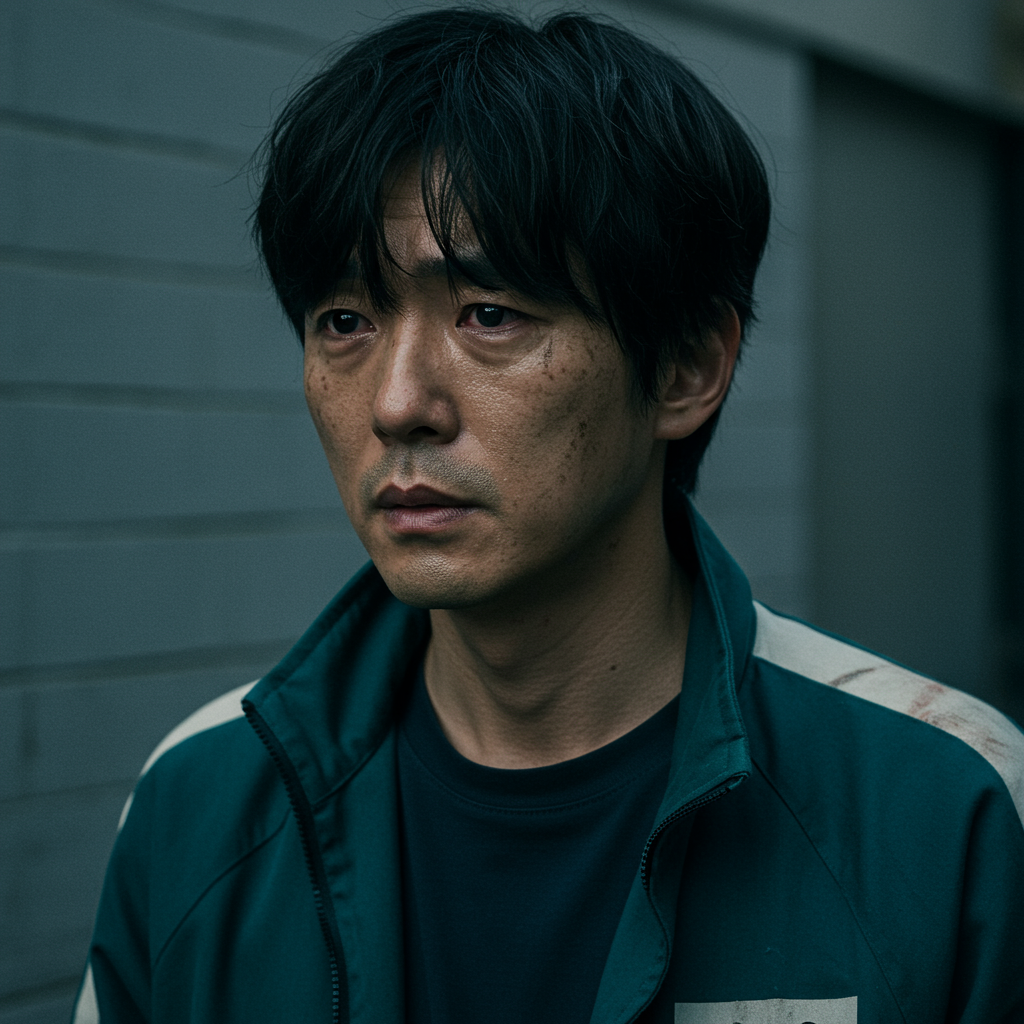Warning: This article contains major spoilers for the third and final season of “Squid Game.”
After three brutal seasons and countless deaths, Netflix’s global phenomenon “Squid Game” has reached its devastating conclusion. The final six episodes, released on June 27, wrap up the story of protagonist Seong Gi-hun and other key characters, delivering an ending that is both heartbreaking and a potential springboard for the franchise’s future. While Seasons 2 and 3 have drawn criticism from some viewers and critics for not quite matching the raw impact and sharp anti-capitalist message of the groundbreaking first season, often feeling more focused on action and barbarity, the finale attempts to provide a poignant, albeit bleak, resolution.
The Final Game: A Baby’s Life, A Father’s Sacrifice
The third season picks up immediately following the failed rebellion attempt seen at the end of Season 2, finding Gi-hun emotionally shattered but driven by a desire to confront the architects of the games. He finds himself in the final, aptly named “Sky Squid Game,” played out on towering platforms shaped like the iconic game’s symbols (square, triangle, circle). With him are Myung-gi, the baby’s biological father, and Player 222 – a newborn baby.
The baby’s entry into the deadly competition is a controversial twist, occurring after a VIP, who had bet on the baby’s now-deceased mother, Jun-hee, suggested the infant be forced to take her place. Gi-hun, having promised Jun-hee he would protect her child, finds himself thrust into the role of guardian. Myung-gi, however, represents the raw greed the games exploit, seeing the baby only as an obstacle to the immense prize money.
The rules of the “Sky Squid Game” are particularly cruel: one person must be pushed off a platform for the others to advance, but the death only counts if a specific button is pressed to officially start the round. In a desperate struggle on the final platform, Gi-hun and Myung-gi fight. Myung-gi falls to his death when the jacket connecting him to Gi-hun rips, but crucially, the round button hadn’t been pressed, invalidating his death for the game’s rules.
Left alone with the baby, Gi-hun faces a grim choice dictated by the game’s structure: press the button to register a death (meaning he’d kill the baby and win), do nothing (resulting in both their deaths), or press the button while falling himself. In a profound act of resistance against the games’ dehumanizing logic, Gi-hun chooses the last option. He sacrifices himself to save the baby, honoring his promise and reclaiming his humanity.
His final words, directed at the Front Man and the watching VIPs, echo the series’ core themes: “We are not horses. We are humans. Humans are…” This unfinished declaration challenges their view of the players as mere animals to be bet on and serves as Gi-hun’s ultimate proof that selfless altruism exists, even within the games’ hellscape. Creator Hwang Dong-hyuk explained that Gi-hun’s sacrifice, though not initially planned, provided a necessary resolution to his journey, emphasizing that a better future requires self-restraint and collective effort over immediate self-interest.
Sacrifice and Survival: Jun-hee’s Fate
Gi-hun wasn’t the only one making heartbreaking choices. Earlier in the season, the pregnant player Jun-hee proved resourceful and protective of her unborn child. Burdened by debt and betrayal, she tragically sacrificed herself during the brutal “Jump Rope” game, played on a narrow, high bridge. Injured and post-partum, she jumped from the platform to her death after entrusting Gi-hun with her baby’s protection. She knew Gi-hun couldn’t return for her and that her absence was necessary to ensure the baby’s game status and survival, preventing other players from targeting the infant. Director Hwang drew inspiration from films like Children of Men, where a child represents future hope, aiming to explore this through Jun-hee’s baby and Gi-hun’s protective instincts. Actor Jo Yu-ri noted Jun-hee’s death highlighted the powerful nature of a mother’s love.
Escape from the Island
As the final game concluded with Gi-hun’s sacrifice, Detective Jun-ho, having finally reached the island after his long search, had a brief confrontation with the Front Man, revealed to be his brother, In-ho. Before the facility’s self-destruct mechanism activated, several key figures managed to escape: In-ho (taking the baby), Jun-ho, No-eul (a rebellious guard), and player Gyeong-seok, whom No-eul helped escape in a complex plan involving killing her superior and destroying records. No-eul managed to escape by blending in with other evacuating guards. The wealthy VIPs, naturally, also escaped the island unharmed, facing no consequences for their role in the atrocities. It was also confirmed that the boat captain, Park, who helped Jun-ho earlier, was actually a game associate and Front Man operative, just following orders.
Six Months Later: Loose Ends and Lingering Trauma
A six-month time jump reveals the fates of some survivors. Jun-ho, having abandoned his previous quest, finds the baby and the massive 4.56 billion won prize money left in his apartment by In-ho, along with a credit card linked to the baby’s winnings (PIN 0222, matching the baby’s player number).
No-eul, still haunted by the games but inspired by Gi-hun’s sacrifice, receives hopeful news. While checking on the father she rescued from the games (who is alive and well), the broker who helped her defect from North Korea provides a promising lead about the whereabouts of her own missing daughter in China, reigniting her hope for the future.
The broker also facilitates another reunion: Sae-byeok’s younger brother from Season 1 finally reunites with his mother, fulfilling a dream Sae-byeok shared with Gi-hun. This reunion was indirectly set in motion by Gi-hun’s actions in Season 1 when he connected the boy with Sang-woo’s mother, who became his guardian. Director Hwang sees this as the realization of Sae-byeok’s hope for her family.
Meanwhile, the Front Man ties up loose ends concerning Gi-hun. After apparently taking Gi-hun’s remaining winnings from Season 1 and replenishing the account, In-ho travels to Los Angeles. He visits Gi-hun’s daughter, Ga-yeong, informs her of her father’s death, and gives her a box containing his blood-stained tracksuit and a debit card linked to the replenished funds. While actor Lee Byung-hun suggested this shows a remaining piece of humanity in In-ho, actor Lee Jung-jae felt Gi-hun would have been upset by this action. Some interpretations see In-ho’s actions toward the baby and Gi-hun’s daughter as attempts to make amends related to Gi-hun.
That Shocking Cameo and the Future of the Games
Just when the ending seems quietly conclusive (echoing the ambiguous note of Season 1), the final moments deliver a significant reveal. As In-ho drives away from Ga-yeong’s house in downtown Los Angeles, he hears the familiar sound of the ddakji game – the paper-flipping game used to recruit players. He spots a mysterious figure in a suit playing ddakji with a distressed American man in an alley. The figure is revealed to be acclaimed actress Cate Blanchett in a shocking cameo.
Blanchett plays a new recruiter for the games, the “American Recruiter” counterpart to the salesman seen in Season 1. Director Hwang cast her for her commanding presence and charisma. This scene strongly suggests that the games are not confined to a remote island off the coast of South Korea; they are expanding globally because, as Hwang explained, “the world at large hasn’t changed,” and the systemic inequalities and cruelty that fuel the games persist.
This coda serves as a powerful, if cynical, statement: despite Gi-hun’s ultimate sacrifice proving that humanity is capable of altruism, it wasn’t enough to stop the cycle of oppression. While In-ho’s reaction suggests he might be impacted by Gi-hun’s death, he ultimately does nothing to intervene, rolling up his window in apparent resignation, hinting he may still be affiliated with the games.
The Cate Blanchett cameo and the Los Angeles setting also fuel speculation about the future of the franchise. With creator Hwang Dong-hyuk stating that Season 3 concludes the main Squid Game story centered on Gi-hun, this final scene is widely interpreted as setting the stage for a potential American spin-off series or expansion, rather than a direct fourth season of the original show. Rumors of a US remake have circulated previously, though Netflix has not made any official announcements regarding a spin-off at this time.
Ultimately, while the main narrative threads for key characters find a form of conclusion, the chilling final scene makes it clear that the deadly games, and the dark societal forces they represent, are far from over. The “Squid Game” universe appears poised to continue, possibly in new and terrifying locations. Despite mixed reactions to Seasons 2 and 3, the finale has been praised by some for its haunting emotional depth and satisfying, albeit devastating, resolution for Gi-hun’s journey. The baby winning the game, a symbolic victory for the future generation, stands as a fragile counterpoint to the pervasive darkness, leaving viewers to ponder whether hope can truly survive in a world where the games persist.




